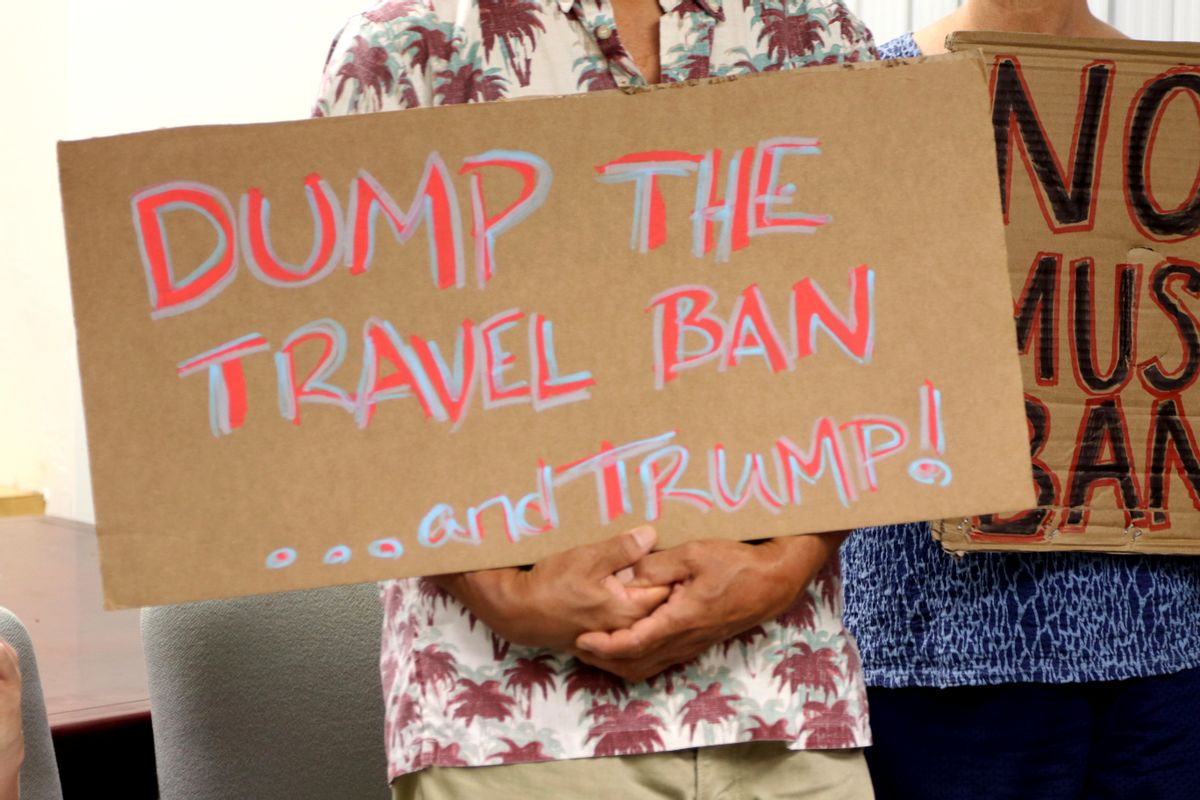A U.S. District Court judge in Hawaii weakened President Donald Trump's travel ban on Thursday, expanding the category of people exempt from the ban to include grandparents, grandchildren, aunts, uncles, nieces, nephews, cousins and in-laws.
After the Supreme Court unanimously ruled in June that foreign citizens from certain countries could not enter the United States unless they can present a “credible claim of bona fide relationship” with someone in America, such as a college, employer, close family member or spouse, the Trump administration defined a close family member as somebody part of the nuclear family.
U.S. District Court Judge Derrick Watson ordered Thursday that the Trump administration could not enforce the travel ban against grandparents, grandchildren, brothers-in-law, sisters-in-law, aunts, uncles, nieces, nephews and cousins, NPR reported.
In his ruling, the judge knocked the administration's definition of a close familial relationship.
"Government's definition represents the antithesis of common sense," the order read. "Common sense, for instance, dictates that close family members be defined to include grandparents. Indeed, grandparents are the epitome of close family members. The Government's definition excludes them. That simply cannot be."
In a press release Thursday, Hawaii's Attorney General Douglas Chin said, "The federal court today makes clear that the U.S. Government may not ignore the scope of the partial travel ban as it sees fit. Family members have been separated and real people have suffered enough. Courts have found that this Executive Order has no basis in stopping terrorism and is just a pretext for illegal and unconstitutional discrimination. We will continue preparing for arguments before the U.S. Supreme Court in October."



Shares